1. can the net generation be as different from other generations
1.1. yes
1.1.1. argument is that teachers and trainers have a different essence from those students
1.2. no
2. digital natives
2.1. not a homogenus group
2.1.1. "lack of homogeneity in the incoming first year student population with regards to technology and a potential ‘digital divide’ between students within a cohort of a single year level"
2.1.1.1. "These findings run counter to key assumptions underpinning Prensky’s (2001a) construct of the Digital Natives"
2.1.1.1.1. think and process information fundamentally different from their predecessors (prensky 2001)
2.1.2. use of podcasting
2.1.2.1. almost 40% of students are uncertain about or do not wish to use this form of technology in their learning.
2.1.2.2. 1 in 5 don't have an MP3 player...
2.1.3. on the other hand
2.1.3.1. bring to their university education certain expecations "general expectations about access, convenience and connectedness"
2.2. important to get data on student experiences / profile for this project
2.2.1. find out what their previous experiences areally are with web 2.0
2.2.2. NEEDs...!
2.2.3. how do you separate that from their view that perhaps Web 2 won’t be useful in the future? Putting it another way, if they haven’t experienced Web 2, it’s not surprising, is it, if they say “well actually Web 2 is not much use in teaching and learning”?
2.3. Core techs (everyone)
2.3.1. mobile phone
2.3.2. chat
2.3.3. internet search
2.4. diverse experience
2.4.1. blogs
2.4.2. wikis
2.4.3. podcasting
2.4.4. think about access / previous experience....
3. Kennedy's inspired by Marc Prensky - are there real differences in nearo-plasticity?
4. evidence based - need evidence before you make decisions...
4.1. "important to take a measured approach to these issues"
4.2. moral panic
4.2.1. careful about extrapolating North American findings to other cultures.
5. More research is needed to determine the specific circumstances under which students would like their ‘living technologies’ to be adapted as ‘learning technologies’.
6. search on internet to see if studies about prensky and this homogenity thing
6.1. teaching google generation
6.1.1. bad habits that they have
6.1.2. poor mental maps
6.1.2.1. contributes to poor information literacy
7. forums
7.1. Students are perhaps not finding it easy to differentiate between using the technology for social or for educational purposes yet, we as adults use the technology for work and play and can deal with both slightly better perhaps.
7.2. don't give learners too much
7.2.1. Garrison ref?
